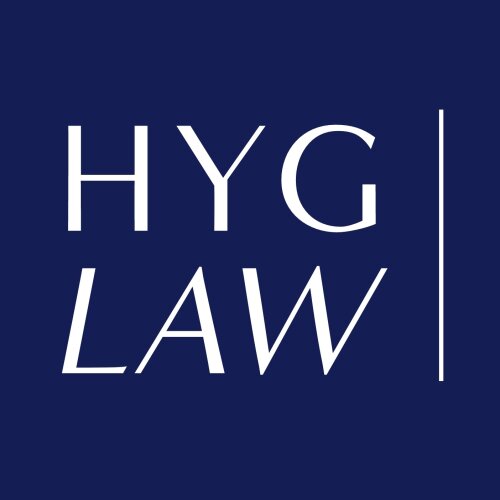Best Financial Services Regulation Lawyers in Cebu City
Share your needs with us, get contacted by law firms.
Free. Takes 2 min.
List of the best lawyers in Cebu City, Philippines
About Financial Services Regulation Law in Cebu City, Philippines
Financial Services Regulation in Cebu City, Philippines, is primarily governed by national laws and regulations as outlined by agencies such as the Bangko Sentral ng Pilipinas (BSP), the Securities and Exchange Commission (SEC), and the Insurance Commission. These regulations ensure that financial institutions operate in a safe, sound, and compliant manner, protecting the interests of consumers and maintaining the stability of the financial system. In Cebu City, local implementation and enforcement of these laws may have nuances or specific practices unique to the city.
Why You May Need a Lawyer
Individuals and businesses may require legal assistance in Financial Services Regulation for various reasons, including:
- Encountering disputes with financial institutions, such as banks or insurance companies.
- Needing guidance on compliance with financial regulations when starting or operating a business.
- Facing issues related to investment securities or financial fraud.
- Seeking to understand the impact of new regulations on personal or business finances.
- Exploring options for financial litigation or defense against regulatory penalties.
Local Laws Overview
In Cebu City, as in the rest of the Philippines, financial services are regulated under a comprehensive framework. Here are some key aspects of these regulations:
- Banking Laws: Overseen by the BSP, ensuring the stability and soundness of banks and financial institutions.
- Securities Regulation: The SEC mandates guidelines for securities issuance and trading to protect investors.
- Consumer Protection: Both BSP and SEC enforce rules to protect consumers from fraudulent practices and ensure transparency in financial product offerings.
- Insurance Regulations: The Insurance Commission regulates insurance companies’ actions, protecting policyholders and maintaining market stability.
Frequently Asked Questions
What is the role of the Bangko Sentral ng Pilipinas in financial regulation?
The Bangko Sentral ng Pilipinas (BSP) is responsible for maintaining the stability of the Philippine financial system. It supervises banks and other financial institutions, ensuring they adhere to sound banking practices and comply with national financial regulations.
How can I address a dispute with my bank?
If you encounter a dispute with your bank, start by addressing the issue directly with the bank's customer service. If unresolved, you may file a complaint with the BSP Consumer Assistance.
What does the Securities and Exchange Commission regulate?
The SEC regulates the securities industry in the Philippines, including the issuance of stocks and bonds, to protect investors and ensure fair, transparent, and efficient markets.
What actions are considered as financial fraud?
Financial fraud covers activities such as Ponzi schemes, insider trading, false investment representations, and unauthorized account transactions designed to deceive individuals or companies for financial gain.
How can a lawyer assist with regulatory compliance?
A lawyer specializing in financial regulation can help ensure your business complies with applicable laws, prepare necessary documentation, and provide ongoing advice to mitigate legal risks.
When should I consult the Insurance Commission?
If you have concerns about your insurance policies or company practices or suspect violations of insurance laws, you should contact the Insurance Commission for advice and support.
Is it necessary to seek legal advice before investing?
While not mandatory, seeking legal advice before investing can be beneficial as it ensures you understand the terms, potential risks, and legal implications of your investment.
Can a lawyer help with financial litigation?
Yes, a lawyer can represent you in financial litigation, whether you're seeking restitution for damages or defending against claims related to financial services.
What are the penalties for non-compliance with financial regulations?
Penalties for non-compliance can include fines, suspension of licenses, and, in severe cases, criminal charges, depending on the violation's nature and severity.
How can financial regulations impact personal finances?
Regulations may affect interest rates, availability of financial products, and consumer rights, influencing personal savings, loans, and investment decisions.
Additional Resources
For those seeking more information or assistance in financial services regulation, consider the following resources:
- Bangko Sentral ng Pilipinas (BSP): Provides guidelines, reports, and updates on banking regulations.
- Securities and Exchange Commission (SEC): Offers resources on securities laws and investor protection.
- Insurance Commission: Details on insurance regulations and consumer rights.
- Department of Trade and Industry (DTI): Helpful for business-related financial compliance issues.
Next Steps
If you require legal assistance in Financial Services Regulation in Cebu City:
- Identify the specific area of concern or legal issue you are facing.
- Consult with a lawyer specializing in financial services regulation. Ensure they have experience dealing with similar cases.
- Prepare any necessary documentation or information that will help your lawyer assess your case effectively.
- Consider reaching out to regulatory bodies like BSP, SEC, or the Insurance Commission for additional support or advice.
- Follow your lawyer's guidance on legal recourse and compliance to ensure the best possible outcome for your case.
Lawzana helps you find the best lawyers and law firms in Cebu City through a curated and pre-screened list of qualified legal professionals. Our platform offers rankings and detailed profiles of attorneys and law firms, allowing you to compare based on practice areas, including Financial Services Regulation, experience, and client feedback.
Each profile includes a description of the firm's areas of practice, client reviews, team members and partners, year of establishment, spoken languages, office locations, contact information, social media presence, and any published articles or resources. Most firms on our platform speak English and are experienced in both local and international legal matters.
Get a quote from top-rated law firms in Cebu City, Philippines — quickly, securely, and without unnecessary hassle.
Disclaimer:
The information provided on this page is for general informational purposes only and does not constitute legal advice. While we strive to ensure the accuracy and relevance of the content, legal information may change over time, and interpretations of the law can vary. You should always consult with a qualified legal professional for advice specific to your situation.
We disclaim all liability for actions taken or not taken based on the content of this page. If you believe any information is incorrect or outdated, please contact us, and we will review and update it where appropriate.

















